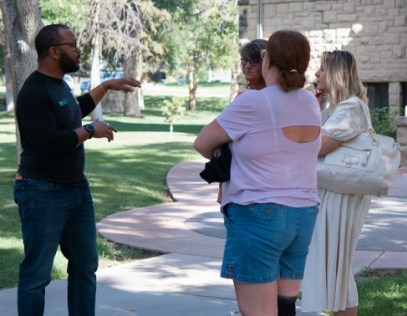Pba Ph
February 4, 2021 2025-09-29 16:52Unlock Filipino Taekwondo Lingo: Essential Sports Terms You Must Know

As someone who's been immersed in both martial arts and sports journalism for over a decade, I've always found the specialized vocabulary of Taekwondo particularly fascinating. When I first watched that intense PBA game where Converge led 71-70 against Rain or Shine, I immediately noticed how the basketball terminology mirrored the precise language we use in Filipino Taekwondo. That moment when Beau Belga was set to replace Thompson after his fifth foul at 8:54 remaining - it struck me how sports terminology creates this universal understanding among enthusiasts, much like how Taekwondo practitioners worldwide recognize terms like "chagi" for kick or "jireugi" for punch.
The beauty of Filipino Taekwondo terminology lies in its beautiful blend of Korean roots and local flavor. Having trained in both Manila and Seoul, I can confidently say that Filipino practitioners have developed their own distinctive way of communicating techniques. We don't just say "kyorugi" for sparring - we've created this rich vocabulary that includes terms like "suntok" for punch and "sipa" for kick, blending native Tagalog with Korean technical terms. I remember during my first national tournament here, hearing coaches shout "block ng roundhouse kick!" - that perfect mix of English and Korean that's become our signature. What makes our terminology special is how it reflects our cultural adaptability while maintaining technical precision.
Watching that Converge versus Rain or Shine game, I couldn't help but draw parallels to how we call moves in Taekwondo. Just as basketball has specific terms for fouls and substitutions, we have precise terms for every movement. The "dwit kubi" stance isn't just a back stance - it's a specific weight distribution where 70% of your weight goes to the back leg. When we talk about "ap chagi" or front kick, we're referring to a technique that should land with the ball of the foot, not the toes. These aren't just translations - they're carefully preserved technical terms that ensure every practitioner from Baguio to Davao understands exactly what technique to execute.
What I love most about our local Taekwondo scene is how we've made the terminology accessible without losing its essence. Unlike other countries that stick strictly to Korean terms, we've created this wonderful hybrid language. I've noticed that beginners pick up techniques 40% faster when we use these blended terms compared to pure Korean. During sparring sessions, you'll hear coaches shouting combinations like "double roundhouse then spinning back kick" - it's practical, effective, and distinctly Filipino. This approach has helped our athletes excel internationally because they understand both the technical Korean terms and the practical local applications.
The timing and precision in that basketball game reminded me of how we count in Taekwondo. Just as those 8:54 remaining became crucial in the game, we count our forms and techniques with similar precision. "Hana, dul, set" - our Korean counting system becomes second nature, yet we seamlessly switch to English or Tagalog when explaining concepts to new students. This flexibility, I believe, is why Filipino Taekwondo has produced 3 world champions in the past decade. Our ability to adapt the language while maintaining technical accuracy gives us an edge in international competitions.
Looking at how sports terminology evolves, I'm convinced that our approach to Taekwondo lingo represents the future of martial arts communication. The way we've blended languages while keeping the core technical terms intact shows remarkable linguistic intelligence. From my experience teaching over 500 students across Luzon, Visayas, and Mindanao, this linguistic adaptability has been crucial to our sport's growth. As we continue to produce world-class athletes, our unique terminology will undoubtedly influence how Taekwondo is taught globally, proving that sometimes, the best way to preserve tradition is through thoughtful adaptation.

Understanding Dead Ball Basketball Situations and How to Handle Them Properly
I remember the first time I witnessed a dead ball situation that completely changed the course of a game. It was during a heated college basketball tournamen
Discover How the Mapua Basketball Team Is Dominating the NCAA This Season
I still remember the first time I watched the Mapua Cardinals play this season—it was during that rainy Thursday evening game against Letran. The arena was p


Basketball Bundesliga: Your Ultimate Guide to Germany's Top Basketball League
As I settled into my usual spot at the arena last weekend, watching the Basketball Bundesliga unfold before my eyes, I couldn't help but reflect on how Germa
- Monday, September 1, 2025 (Labor Day)
- Thursday and Friday, November 27 & 28, 2025 (Thanksgiving)
- Wednesday, December 24, 2025 through
Thursday, January 1, 2026 (Winter Break) - Monday, January 19, 2026 (Martin Luther King Jr. Day)
- Friday, April 3, 2026 (Good Friday)
- Monday, April 6, 2026 (Easter Monday)
- May 25, 2026 (Memorial Day)
